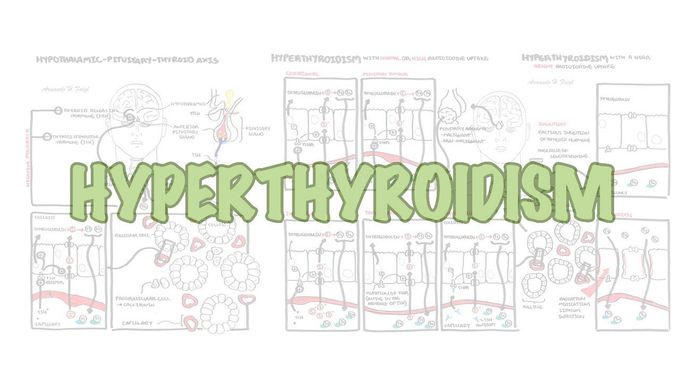


Hyperthyroidism Overview (causes, pathophysiology)
Hyperthyroidism is defined as elevated Thyroid Hormones (TH) in circulation. Thyroid hormones are important hormones in fetal development and also metabolism. So high thyroid hormone levels as you can imagine will amp up metabolism to a point where it becomes pathological. Hyperthyroidism and thyrotoxicosis refers to the same thing really. However some define hyperthyroidism specifically as increased synthesis of thyroid hormones where as thyrotoxicosis refers to the clinical syndrome of excess circulating thyroid hormones, irrespective of the source. In this video hyperthyroidism will mean high levels of thyroid hormones in circulation causing the signs and symptoms of hyperthyroidism. Understanding the physiology of the thyroid gland, the hypothalamic, pituitary thyroid axis is important to understanding hyperthyroidism thyrotropin-releasing hormone (TRH) stimulates the synthesis and secretion of thyroid-stimulating hormone, TSH), which acts at the thyroid to stimulate all steps of TH biosynthesis and secretion. The THs thyroxine (T4) and triiodothyronine (T3) control the secretion of TRH and TSH by negative feedback to maintain physiological levels of the main hormones of the HPT axis. In hyperthyroidism there is elevation of circulating TH this means there will be a negative feedback loop causing a decrease in TRH and TSH

